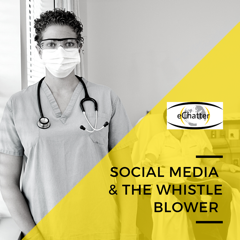LinkedIn is a professional networking platform designed for individuals to connect with colleagues, showcase their professional achievements, and engage in industry-related discussions. While it’s a great platform for professional networking and personal branding, it’s essential to strike a balance and maintain a level of professionalism in your posts and interactions.
If you’re noticing that people on LinkedIn are oversharing, it could be due to various reasons. Some individuals may not be aware of the professional boundaries on the platform, while others might be intentionally blurring the lines between personal and professional content.
What LinkedIn Can Reveal
Depending on your case, and online investigation, searching LinkedIn may not be top of mind. However, it is quickly becoming a platform that you may not be able to afford not to check!
One recent post was from a professional woman who was sharing publicly that she was 5 years sober. She was proud of her accomplishment and wanted everyone to know. She went into quite a bit of detail as to what she went through in her journey to sobriety.
Another recent post was a from a male in his forties who was having a difficult time finding a job. His post was very personal. He wrote about the hardship of his wife having to work two jobs and the toll it was taking on his kids. It was almost like a public outcry for help and it was a very long and detailed post.
I immediately thought of how this information may be very beneficial in our OSINT work. LinkedIn is often thought of as the place to check for employment verification. However, if this is the new trend, it will serve to be much more useful than just that.
Oversharing is not Well Received By All
The Washington Post published an article back in August of 2023 on this subject. It is titled, “LinkedIn is getting weirdly personal and not everyone likes it”. The article referenced a recent post by Erika Taylor-Beck who was interviewed for the article. Here is what was written:
“I don’t always have it all together,” she wrote before revealing that she had been sexually abused, had turned to self-harm and binge drinking as coping mechanisms and has struggled with social anxiety and depression. “I share my ‘dirty laundry’ because it has made me who I am. … I’m grateful, and I want to help others get here too.”
Taylor-Beck, 40, made these confessions along with words of encouragement on LinkedIn, the social network more than 930 million people use globally for professional networking and job searching. As a vice president of e-learning and health-care compliance company Relias, she wanted to lead by example.
“I wanted to create a culture where folks felt like they could bring their whole selves to work,” she said. “So sharing my experiences so you feel safe to share yours.”
Research shows that people get positive mental effects from expressing personal elements about themselves to others, said Sunny Xun Liu, associate director of the Stanford Social Media Lab, which studies the psychological and interpersonal processes of social media. But how others perceive these confessions may not always be equal, she added.
“For men [mostly leaders] … people will think they’re competent,” she said. “But for lower ranks [and sometimes women], people may think they’re less competent.”
LinkedIn Searching
Search and Boolean Operators:
Use LinkedIn’s search functionality with specific keywords and Boolean operators to narrow down results. This can help you find individuals or companies with specific characteristics.Reviewing Recommendations and Endorsements:
Recommendations and endorsements on LinkedIn can offer additional insights into an individual’s professional strengths and relationships.Metadata and Timestamps:
Pay attention to timestamps on posts and updates. This information can be crucial for establishing timelines and understanding the sequence of events.Saved Articles and Publications:
LinkedIn allows users to save articles and publications. Reviewing what a person finds valuable or informative can provide insights into their interests and expertise.Consistency Checks:
Cross-reference information gathered from LinkedIn with data from other sources to verify its accuracy and ensure consistency.







